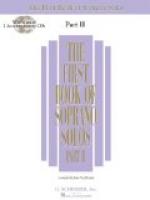An enthusiastic light glowed in Hubert’s face as he spoke. His father eyed him curiously as on the day before.
“Just so—just so,” he replied, absently.
Presently, however, he rallied to the discussion. “But, Hubert,” he said, “do you remember what they did with the proceeds of their sales?”
“Yes,” said Hubert, “they laid them at the feet of the Apostles, and distribution was made to the needs of all the company.”
“That was not an indiscriminate alms-giving,” said Mr. Gray.
“No,” replied Hubert. “But the parting with their possessions of those who had property supplied the need of those who had none. That could be called alms-giving, I should think.”
“That seemed to be confined to the church,” said Mr. Gray meditatively.
“Yes,” said Hubert, “and when a beggar solicited alms of Peter and John, they had nothing to give him! No—I beg pardon—they had much to give him, through the ‘riches in glory.’ They gave him ability to make his own living, which was far better than an alms. But is there not some other Scripture that will tell us the relative positions of the church and the world to us in our giving?”
“I think so,” said Mr. Gray. “How is this? ’As we have opportunity let us do good unto all men, especially unto them who are of the household of faith.’”
“That is to the point,” said Hubert.
“But to return to the Pentecostal precedent,” said Mr. Gray; “if we were to sell out, at whose feet would you propose laying the proceeds?” He looked slyly at Hubert. “At Doctor Schoolman’s?”
“Never,” said Hubert, and then he laughed. “I beg the gentleman’s pardon for my emphasis,” he said, “but it never would occur to me to turn over my money to him.”
Mr. Gray smiled. He felt that he had scored a good point against any rash procedure in the matter of possessions.
“At whose feet, then,” he persisted, “would you think to lay it down?”
“There’s the rub,” said Hubert grimly.
“Ah, just so,” said his father.
There was silence for a few moments and then Mr. Gray began again:
“Those early conditions at Jerusalem have never been reproduced since they were broken up by the scattering of the church, and I do not remember any hint in the Epistles to the Churches that there should be an effort to establish a similar communism in any place.”
“No?” said Hubert. “I shall search farther and see what they do say.”
And he did. A less disinterested disciple would not have pressed such a vigorous search toward an end that might mean his own monetary disadvantage. But a supreme longing to know the will of God and to do it was master of the situation. Moreover he remembered the vision of the cross that stood at the outset of his Christian way, and the terms of complete abandonment of himself and his circumstances to which he consented in his heart.




